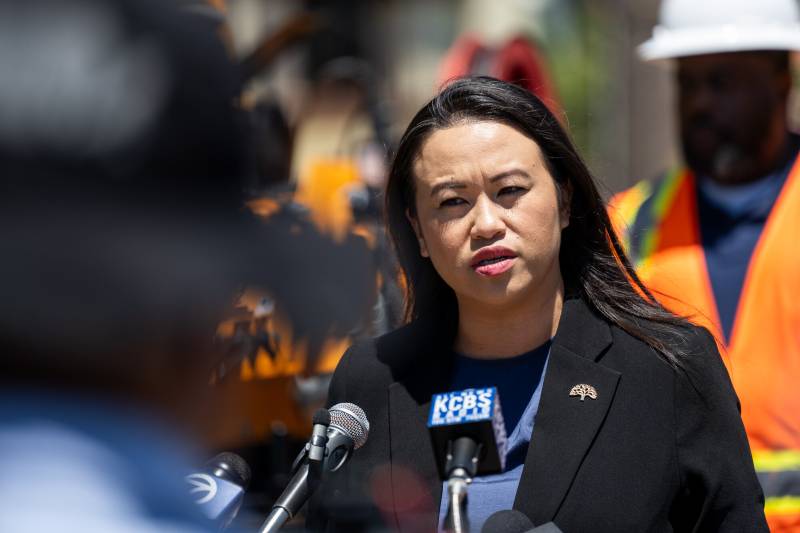OUST says it was a mistake to fire Armstrong and they blame Thao for a rise in crime in the city in 2023. Crime rates are now declining, according to data reporting by the Oakland Police Department. OUST also says Thao has violated city and state ethics rules and points to three open Public Ethics Commission complaints alleging Thao misbehaved during her campaign for the 2022 mayoral election and the FBI raid of her home last June. PEC told KQED that two of the complaints are on hold, and one has progressed to an investigation. PEC staff places matters on hold when there is insufficient evidence or staffing to pursue it or when the issue raised is considered of lesser public interest. No criminal charges have been filed against Thao in relation to the FBI raid.
Supporters of Thao say Oakland’s public safety challenges are decades old and not the fault of a mayor who’s been in office for less than two years. They say the recall is the work of people bitter that their preferred candidate didn’t win the 2022 mayoral election. A wealthy Piedmont hedge-fund manager has predominantly funded the recall effort, and Thao supporters say OUST doesn’t reflect the interests or the will of the majority of Oakland voters. In the wake of the FBI raid, Thao maintains that she has not broken any laws and is not the focus of the FBI probe.
For more on who supports and opposes the Thao recall, check out our page on the Oakland mayor recall election in KQED’s voter guide.
Oakland follows state recall law, which allows residents to recall an elected official on the ballot if they can collect signatures in support from 10% of registered city voters. In June, Oakland’s City Clerk announced the recall campaign had submitted enough valid signatures to place the issue on the ballot.
If the recall is successful, how will a new Mayor be chosen? Will there be an interim Mayor?
If Oakland voters recall Thao, the city council president will serve as interim mayor until the city holds a special election to select a replacement.
It sounds simple, right?
Well, there’s a big catch. What makes the interim succession plan potentially more complicated is that the current city council president, Nikki Fortunato Bas, is involved in an election of her own. She’s running for Alameda County’s Board of Supervisors (You can also check out that race in our election guide).
If Fortunato Bas wins that election, a successful recall could set off what two UC Berkeley recall law experts call an “avoidable carousel of mayors.” Fortunato Bas could hold the position for a short period, then pass it to the next council president, who would then hand it off to the winner of a special election — in other words, we could see three new mayors in the course of a few months.
But that’s not the only possible scenario. Fortunato Bas could resign as council president, at which point the council would elect a new president who would then also serve as interim mayor.
Alternatively, Fortunato Bas could pass on the interim position while remaining the council president and another member of city council could be selected to fill the seat. That member would have to resign from their city council position to become interim mayor — which would set off another special election to fill their seat. They would also be barred from being a candidate in the special election for mayor.

